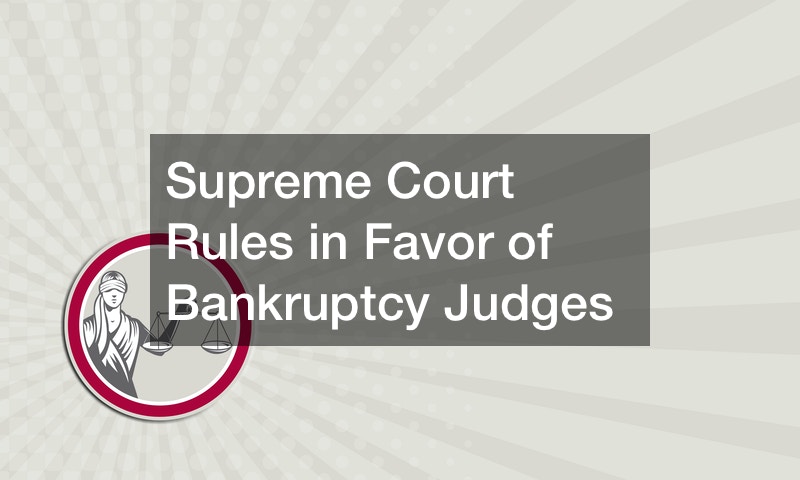Supreme Court Rules in Favor of Bankruptcy Judges
If you’re in a lot of financial trouble, bankruptcy might be able to help. However, filing for bankruptcy does come with consequences, so you want to be sure that you’re making all the right decisions. This is why it is so important to work with a bankruptcy law firm as you go through the process. While you might think this is another unnecessary expense, your bankruptcy lawyer is essential. They have access to bankruptcy court, as well as experience with all types of bankruptcies. This gives them skills and experience with the system that you don’t have. They can help you avoid making mistakes that will prolong the process and cost you more money.
There are advantages and disadvantages of filing bankruptcy and you need to make sure you’re choosing the right type for your situation. Your lawyer will understand how active bankruptcies work, meaning they can help you choose the one that fits your needs. If you don’t choose the right type of bankruptcy, you might end up missing out on benefits you would have otherwise been able to access.
On Monday, June 9, the United States Supreme Court ruled in favor of federal bankruptcy judges in the case Executive Benefits Insurance Agency vs. Arkison, thereby upholding the rulings of lower courts.
According to the Associated Press, the Supreme Court ruled unanimously that a Washington state bankruptcy court had stayed within its limits when it took into consideration a lawsuit that claimed the Bellingham Insurance Agency had unlawfully transferred its assets to another insurance company shortly before declaring bankruptcy.

The EBIA vs. Arkison ruling reaffirms a shift in bankruptcy law that started with the Supreme Court’s 2011 ruling inStern vs. Marshall, according to Forbes magazine. That case took away bankruptcy judges’ power to determine “non-core” matters that don’t directly relate to dividing the assets of a debtor to give to creditors. Monday’s ruling gives bankruptcy judges limited jurisdiction over these “non-core” matters.
According to the Associated Press article, the bankruptcy acted in accordance of the limits on its powers to consider unrelated factors because a bankruptcy court is permitted to look at these matters if a federal district court reviews them as well.
Douglas Hallward-Driemeier of Ropes & Gray, who litigated for the losing party, EBIA, told Forbes that the EBIA vs. Arkison ruling will have little impact on most personal bankruptcies. This is because most personal bankruptcies don’t normally involve claims against third parties that are made when it is believed money has been bled from an estate to preserve a debtor’s assets.
“Judges are going to be happy with this ruling because now they will have less chance of getting overruled on appeal for exceeding their jurisdiction.” says Charles Huber, Attorney at the Law Office of Charles Huber
While the Constitution gives authority to Congress to create regulations on bankruptcy law, the Supreme Court has in recent years pushed back attempts from Congress to place these regulations on bankruptcy lawyers, the Forbes article reported. While the Supreme Court hasn’t fully laid out regulations for bankruptcy lawyers and judges, the EBIA vs. Arkison and Stern vs. Marshall cases lay out an important precedent.










